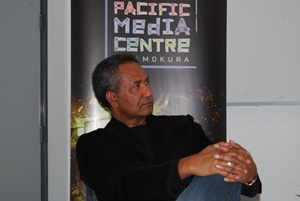
AUCKLAND (University of Canterbury / Pacific Media Watch): Fijian academic Dr Steven Ratuva, a political sociologist at the University of Auckland, has been appointed professor in the Department of Sociology and Anthropology and director of the Macmillan Brown Research Centre for Pacific Studies at the University of Canterbury.
One of Professor Ratuva’s tasks is to reform and revive the well-regarded Macmillan Brown Centre, an important New Zealand institutional icon to become a world class centre of Pacific research.
Professor Ratuva was also recently appointed board member of two International Political Science Association research committees (“Asia-Pacific” and “democratisation” research committees) during the last World Congress of Political Science in Montreal in July.
He is also a member of the American Political Science Association and Australian Political Studies Association, where he presented a paper on the recent Fiji election at its conference at the University of Sydney on September 30.
Professor Ratuva is a former president of the Pacific Islands Political Studies Association, a position he held for a number of years until he passed on the role to Professor Stephanie Lawson of Macquarie University, Australia, in August this year.
In addition to these, Professor Ratuva also won a Marsden research grant worth $NZ600,000, a highly competitive research fund awarded to leading New Zealand researchers, for a study of Pacific regional security.
He has published widely in books and journals on diverse issues such as ethnic conflict, affirmative action, military-civil relations, security, development, indigenous intellectual property rights, social protection and regional geo-politics.
Picasso-style mural
The cover of his latest book, Politics of Preferential Development, published by the Australian National University Press, depicts the mural on the Lambert Hall stage at the Marist Brothers High School in Suva, which he painted while he was a student at the school.
Based on the cubism style of Pablo Picasso, the great Spanish painter, the mural depicts the future of Fiji’s complex multiracial challenges and hopes. Apart from being an artist, he is also a musician and former president of the Fiji Bodybuilders Federation.
He has worked in a number of universities around the world including the Australian National University, University of the South Pacific and University of Auckland and has been a visiting scholar and fellow in a number of universities including the University of New South Wales, University of New Caledonia, Duke University in the United States and University of Malaya.
Professor Ratuva has been a consultant and adviser for a number of international organisations.
Originally from Naioti village, Yale district, on the island of Kadavu, Professor Ratuva studied at the Marist Brothers High School in Suva and later at the University of the South Pacific, University of Oporto in Portugal and University of Sussex in the United Kingdom where he completed his PhD degree in a record time.
Professor Ratuva often provides expert analysis of Fiji and Pacific issues for regional and international media, including the Pacific Media Centre's Pacific Scoop and Pacific Journalism Review journal. He has been on the editorial board of that journal for more than a decade.
He recently spent three weeks in Fiji before, during and after the September 17 election, carrying out field research for two books he is writing and was also the expert political analyst for Fiji TV and the international media during the election period.
This work is licensed under a Creative Commons Attribution-NonCommercial 3.0 New Zealand Licence.




